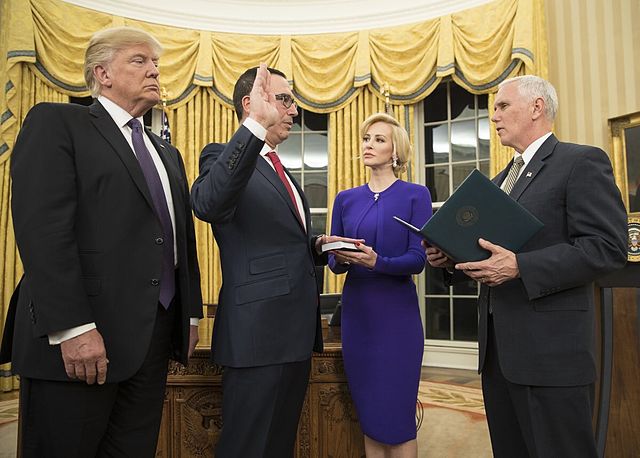The Trump administration broke with a long tradition of White House support for a strong dollar in the world market place. Speaking at the World Economic Forum in Davos, Switzerland,

, the treasury secretary, declared that a weaker dollar, and not a stronger dollar, is good for the US economy.
“Obviously, a weaker dollar is good for us as it relates to trade and opportunities,” Mnuchin declared to reporters at the Davos meeting. He added that the recent loss in value of the US dollar against other world currencies was “not a concern of ours at all.”
Wall Street was surprised by the declaration. Some economists and Wall Street traders are confused by the weakening of the dollar despite the economic upturn, which usually causes the dollar to go up in value.
The dollar has lost about 10% in value over the past 12 months, when President Trump said the dollar was “too strong,” making it difficult for companies to compete with countries like China.
Wall Streeters were shocked by Trump’s action. Historically presidents have usually believed in a strong dollar, at least when speaking publicly, even if behind the scenes economists were happy to have a softer dollar to strengthen US exports and lower trade deficits.
“It’s remarkable, really, this kind of bomb-throwing from Mnuchin on the dollar the same week they slap on tariffs,” said Ian Shepherdson of Pantheon Macroeconomics. “The problem with this is it just invites retaliation. This is not a friendly action.”
The tariffs he referred to include this week’s action by the Trump White House to impose tariffs on some imported solar panels and washing machines.


